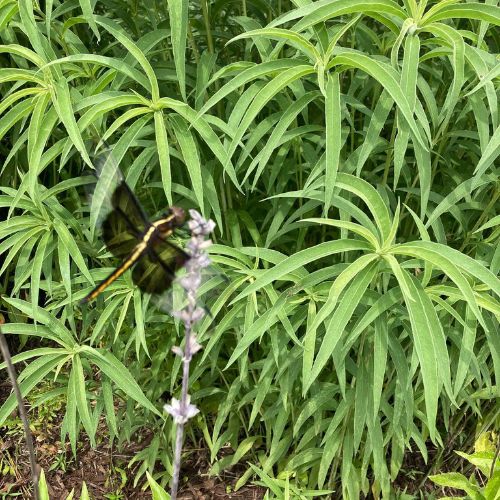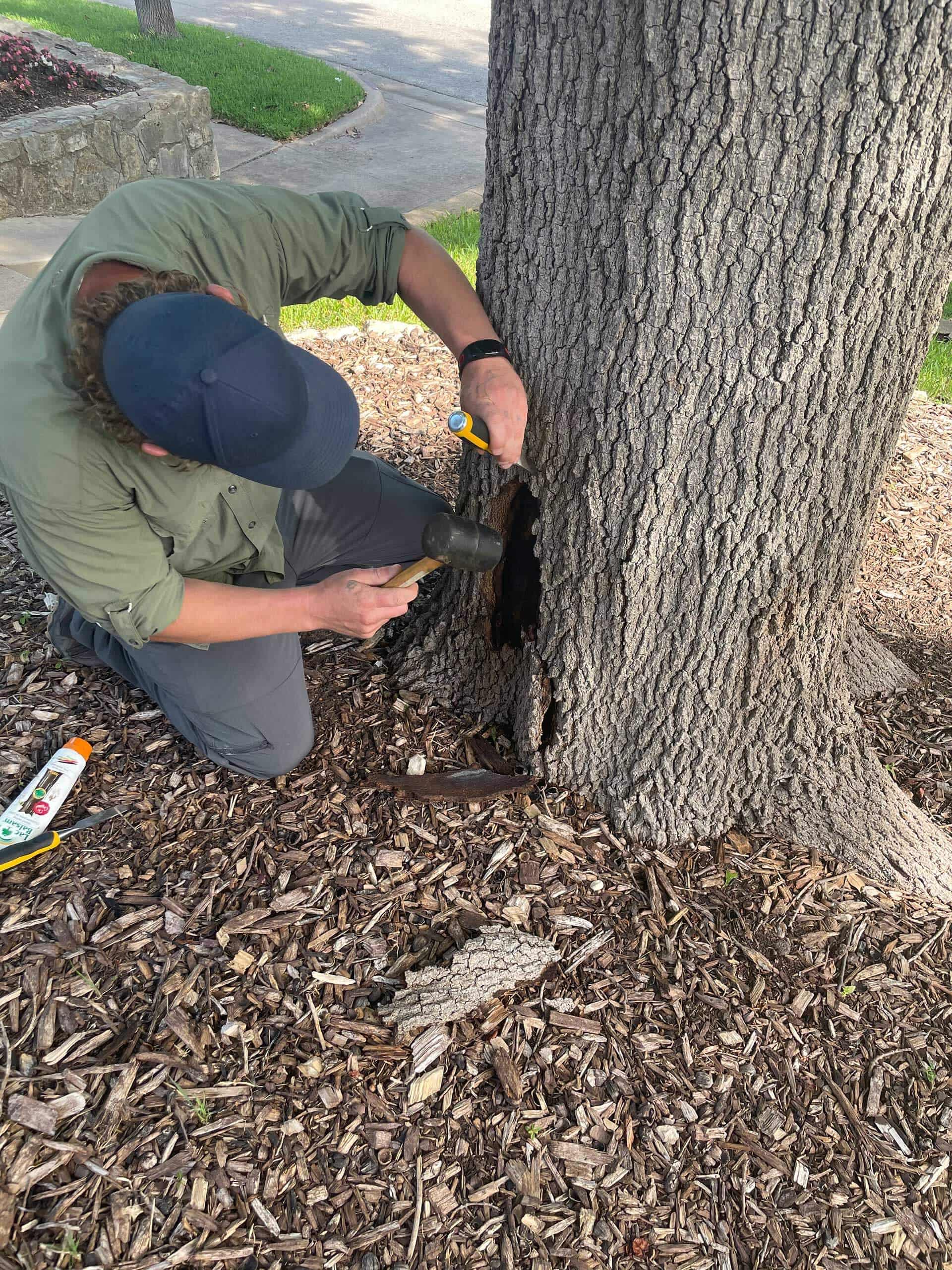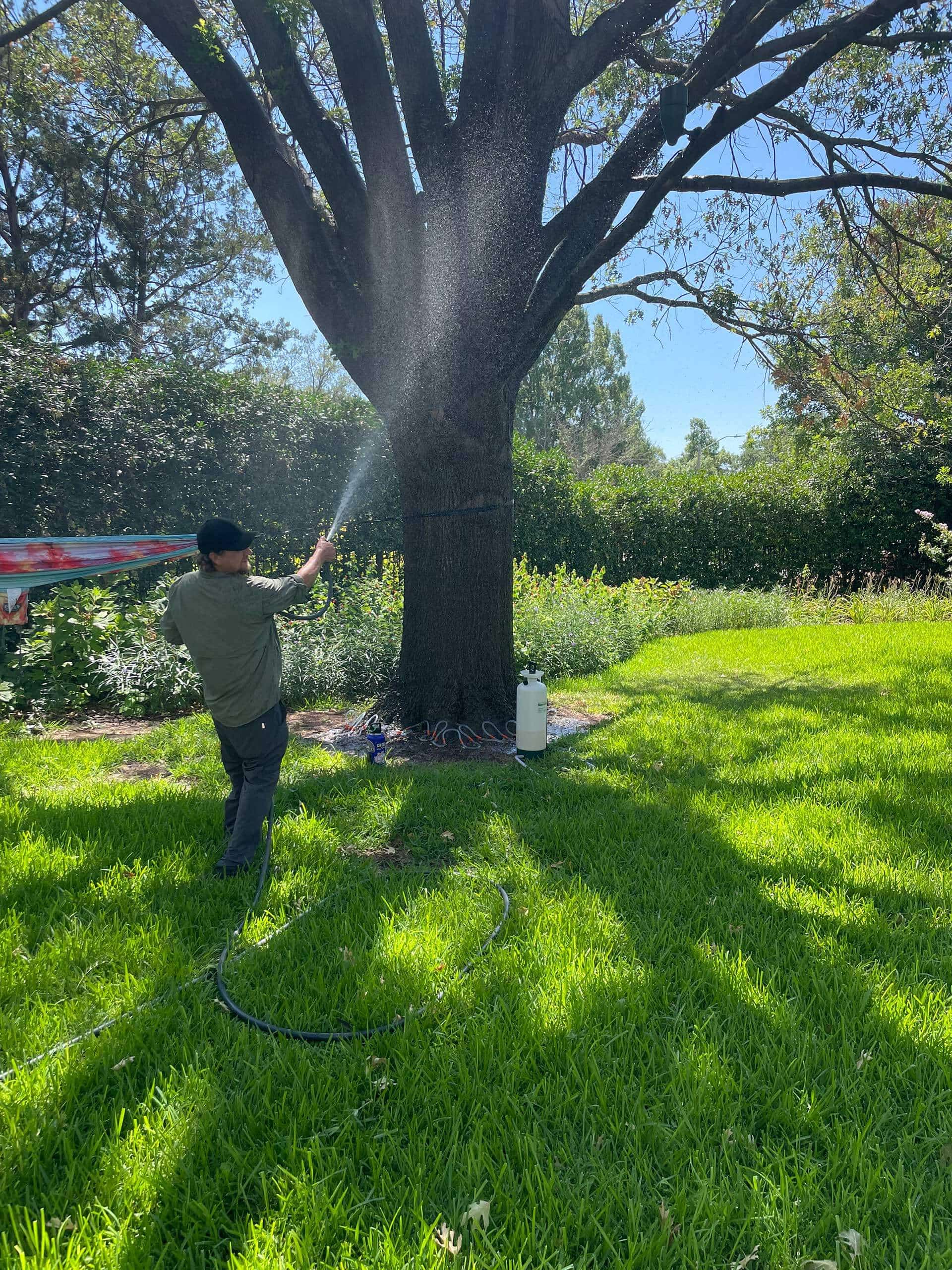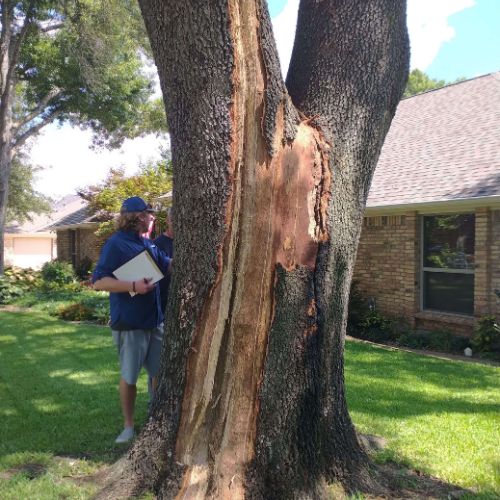Have you noticed holes in your oak, willow, poplar or cottonwood trees? Have you seen sawdust material around the base of your tree? If yes, you need to act quickly.
These are the most common signs that a cottonwood borer beetle has infested your tree. This beetle, also called Plectrodera Scalator, targets trees that are already stressed or damaged. They hollow the trees from the inside slowly. If ignored, it can weaken your tree and lead to its permanent decline.
At Fort Worth Arborist Co., our ISA-certified experts know how to help your tree recover. We offer targeted tree borer treatment. We inspect your trees, confirm the issue, and create a custom plan to stop the tree borer damage.

For over 20 years, we’ve helped Fort Worth residents keep their trees healthy. When you call us for tree borer treatment, our ISA-certified arborists check for entry holes, frass (sawdust-like debris), and damage under the bark. If cottonwood borer beetles are confirmed, we treat your tree with professional-grade solutions without harming your tree or nearby plants.
In addition to checking borers in trees, we also offer services like root flare exposure, soil aeration, and fertilization. If we find any other issues, we’ll recommend follow-up care to strengthen your tree.
When you work with us, you get:

Cottonwood borer beetles tunnel into the tree trunks and branches, weakening your tree’s vascular system from within. Over time, the damage reaches almost every part of the tree and leads to death. However, professional tree borer treatment can help you prevent that from happening.
If your tree shows any of these signs, call our professional arborists immediately:
Fort Worth Arborist Co. offers personalized treatment for killing tree borers. Our team diagnoses the extent of the damage and recommends a solution accordingly.

We’ve been treating tree borers in North Texas for over 20 years. Our solutions are based on careful inspections and science-backed treatments. We know how to identify the signs of cottonwood borer beetle infestations early.
Fort Worth Arborist Co. is:

Tree borer treatment stops the beetles that destroy your trees from the inside out. Acting quickly can prevent holes, dead wood, and limb loss and keep your tree strong and full.
The proper treatment can:
Us
Them
Need treatment for tree borers? Call 817-975-0180 or book your inspection online. We’ll check your tree, treat the infestation, and nurse it back to full health.
"*" indicates required fields
You need a certified arborist to apply the right insecticide or systemic treatment based on the type of borer and tree. If you see borers in your trees, call 817-975-0180 to book an inspection.
It depends on the tree size, level of infestation, and number of trees. Contact us for a personalized quote.
Look for small holes in the bark, sawdust at the base, wilting branches, or bark that’s peeling away.
Yes, if caught early. With proper treatment and care, many trees can survive and stay healthy.
They mostly target cottonwood, poplar, and willow trees, which are common across Fort Worth and North Texas.
Late spring to early summer is the right time. This is when borer larvae are active and most vulnerable to treatment.
Yes, if untreated, borers can move from one infested tree to nearby healthy trees, especially if they’re the same species.
Some treatments start working within days, but the final results depend on how widespread the damage is. Most trees need follow-up care.
Tree borers don’t pose a direct risk to humans or pets, but falling limbs from weakened trees can be dangerous.
Yes, regular inspections, proper pruning, and maintaining tree health can help prevent future infestations. We offer yearly maintenance plans to help with that.